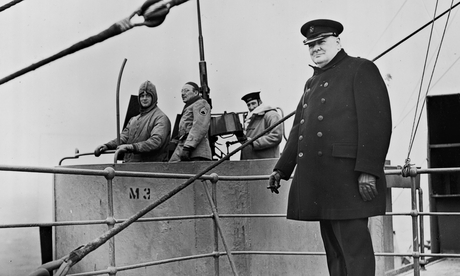
"Only a fool or liar will tell you how the brain works," says the author, midway through this fascinating study of the living nightmare that is obsessive compulsive disorder. And rest assured, Dr David Adam is neither. Indeed, he has written one of the best and most readable studies of a mental illness to have emerged in recent years.
What makes this book compelling reading is its openness. I mean that in every sense. The author is candid not only about the inevitable limitations of any book on mental illness, when we only know so much about the brain, but also about his own experience.
For while Adam, a writer and editor at the science journal Nature, is well qualified to write a scientific account of OCD, this is more personal than an average study. Although his book is not really a memoir, it does stem from Adam's own battle with the illness.
In 1991, as a young college student, he became obsessed with the idea that he could have Aids. Panic enveloped him. He tore the posters down from his wall. "I gulped for air when I opened the window in my stuffy bedroom… I was so frightened, the tips of my fingers tingled." But this wasn't a temporary panic attack. It was just the beginning of his irrational and crippling fear he would contract Aids.
And it is an ongoing battle. ("I see HIV everywhere. It lurks on toothbrushes and towels, taps and telephones… Dry skin between my toes can force me to walk on my heels through crowded locker rooms, in case of blood on the floor.")
But as already noted, this is no memoir. This is a book that contains many examples and case studies, of which Adam's own example is just one. We have Winston Churchill's fear of sea travel because of his "ego-dystonic" urge to jump into the water. We have logician and mathematician Kurt Gödel's fear of food poisoning and electricity pioneer Nikola Tesla's obsession with the number three. Tesla felt safe only in the company of pigeons because of his fear of humans and their germs. Then there is Hans Christian Andersen, so petrified of being buried alive that he had to leave a note by his bed pointing out that he was asleep, not a corpse.
The most compelling examples, however, are those of the non-famous. There is Bira, the Ethiopian schoolgirl, who ate an entire wall of her own house in order to stop thinking about it. In a chapter on impulsive behaviours, we meet Marie, the sexsomniac, whose husband once woke up in intense pain to find three padlocks placed around his penis and testicles.
These examples are integrated into a wide-ranging exploration of the illness, looking at possible causes and cures. It takes in traditional psychiatry (Adam is humorously dismissive of Freud's belief that OCD is a result of guilt over masturbation as an adolescent), evolutionary psychology, genetics, aversion therapy, philosophy, social history, religion, neuroscience, anthropology and even zoology.
There are no easy answers, or easy cures, and Adam's book is stronger, not weaker, for acknowledging this, just as he acknowledges that his own condition stays with him.
While this isn't a book full of conclusive answers, you do find yourself learning a lot more than you did about things such as the basal ganglia and MRI scans, and maybe more than you really wanted to know about skin-picking disorder. But what powers it along is the sense of a quest, the sense of Adam looking for answers – for himself and for the others who are imprisoned by this disorder. In that sense, it is a detective story.
In the final chapter, he wonders what specific incident caused his illness and runs through the possibilities in semi-serious style. "My childhood fear of dogs… the sore throat I had when I was six… that my mother had a stroke and couldn't hold me as a baby… the trauma of Stoke City's relegation… the death of Sebastian, my pet rabbit. That fucking Aids advert."
He goes on to discuss an early memory he thinks may have been the first seed of his illness but admits this "could be a creation myth". He is also adamant that The Man Who Couldn't Stop isn't a self-help book, but that if it helps someone, then his "strange thoughts will finally have meant something". He certainly enlightens, even entertains. While OCD might seek a false order in a messy world, the book itself doesn't fall into the same trap. This is what makes it such an honest and open and, yes, maybe life-changing work.

